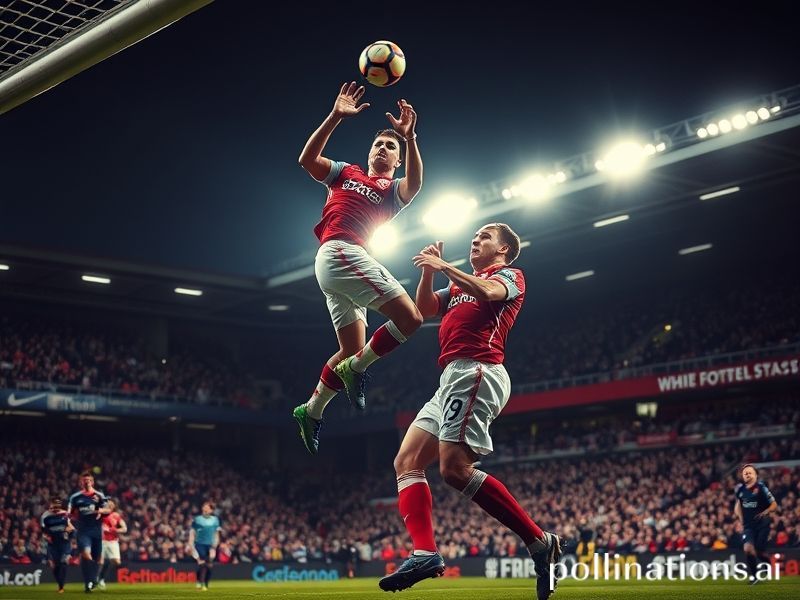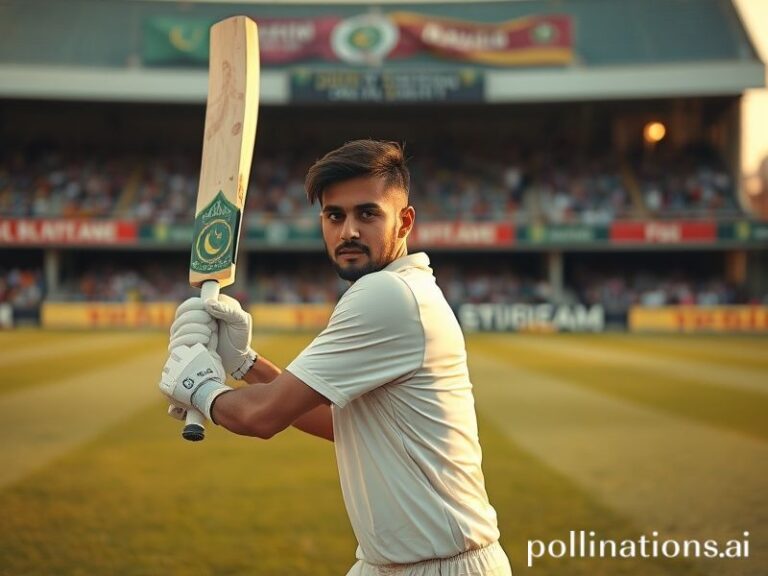Preston vs Middlesbrough: How a Rain-Soaked Second-Tier Fixture Quietly Runs the World
Preston vs Middlesbrough: A Tale of Two Towns, One Ball, and the End of Civilisation As We Know It
By Our Man at the End of the Pier, International Correspondent
Deep in the damp heart of Lancashire, where the rain falls with the precision of a Swiss debt collector, Preston North End and Middlesbrough are preparing to do battle again. On paper it is merely a Championship fixture—three points, a few bruised egos, the usual. In the grand scheme of things, however, it is the geopolitical equivalent of a bar fight breaking out between two minor duchies while the rest of the world watches Netflix.
To the uninitiated, the fixture looks like a beige blur on an already colour-blind calendar. Yet from Jakarta to Johannesburg, traders in dimly lit rooms have learned to keep one eye on the Deepdale pitch. Why? Because the global supply chain of schadenfreude depends on English second-tier calamity the way the Dutch depend on dykes. Every misplaced back-pass is a micro-dose of comfort for someone whose own national team has just been thrashed 7-0 by a country whose chief export is melancholy.
Consider the international stakes. Preston’s owner, an understated tax-planning enthusiast from Delaware, also owns a slice of an esports franchise in Seoul, a coconut-water start-up in São Paulo, and a politician or two in Washington. Middlesbrough’s main investor, meanwhile, is a reclusive former metals oligarch who divides his time between a super-yacht berthed in Monaco and a bunker outside Ulaanbaatar. Their proxy war will be fought with 22 men earning sums that would make a UN peacekeeper blush, while the planet’s temperature rises another fraction of a degree unnoticed in the background.
Over in Brussels, a bored Eurocrat toggles between live blogs: one covering the match, the other covering the latest grain-export negotiations. The result from Deepdale, she has discovered, correlates suspiciously with the price of Ukrainian wheat futures. A 1-0 home win for Preston historically depresses commodity markets for reasons no econometric model can yet explain, though a post-doc in Zurich suspects it has something to do with ironic beard density among traders.
Social media, that great planetary nervous system, amplifies the absurdity. In Lagos, a meme account superimposes the face of Preston’s goalkeeper onto a wobbling bowl of eba; within minutes it is retweeted by a K-pop idol with 38 million followers. Somewhere in Silicon Valley, an algorithm notes the spike, flags “Northern English football angst” as an emerging market segment, and begins serving ads for artisanal stoicism apps. The circle of life, rebooted for late capitalism.
On the touchline, the managers embody two competing philosophies of existence. Preston’s gaffer preaches “controlled verticality,” a phrase that sounds like an erectile-dysfunction therapy but actually involves kicking the ball forward very quickly in the hope someone chases it. Middlesbrough’s coach, gaunt and existential, favours “possession with tragic inevitability,” a style that resembles Sisyphus on a half-day seminar. Their post-match interviews will be parsed by pundits in four languages and mistranslated into seventeen more, each version slightly more despairing than the last.
And the fans? Ah, the fans. They arrive wrapped in layers of irony and polyester, singing songs that would make a UN human-rights rapporteur blush. One banner unfurled behind the goal reads “BREXIT MEANS BREXIT—AND ALSO THIS.” Another simply says “SORRY, PLANET.” In the away end, a Middlesbrough supporter live-streams the match to his cousin driving a lorry across the Gobi Desert, because even desert truckers need confirmation that somewhere, somehow, life is still worse.
When the final whistle goes—likely after 94 minutes of existential dread and one inexplicable VAR review—the world will move on. Stock prices will twitch, a crypto coin named after a 1980s midfielder will surge, then crash. The players will trudge off, already half-forgotten, while outside the stadium a lone seagull contemplates the remnants of a dropped meat pie, a metaphor too obvious for any self-respecting poet to touch.
Yet beneath the surface absurdity lies a truth as uncomfortable as a wet Tuesday in February: we keep showing up. From Valparaíso to Vladivostok, humans still gather around screens, radios, and smoke signals to watch 22 strangers chase a sphere. It’s not about the ball. It’s about the shared delusion that somewhere, in some rain-sodden corner of England, the universe makes a kind of sense—even if that sense is mostly despair seasoned with lukewarm Bovril.
So let Preston and Middlesbrough collide once more. The planet will keep spinning—slightly off-axis, perhaps, but spinning nonetheless. And somewhere a weary diplomat will close her laptop, mutter “nil-nil, obviously,” and book another flight to the next crisis, comforted by the knowledge that somewhere, someone is still worse at defending set pieces than the United Nations is at defending human rights.







